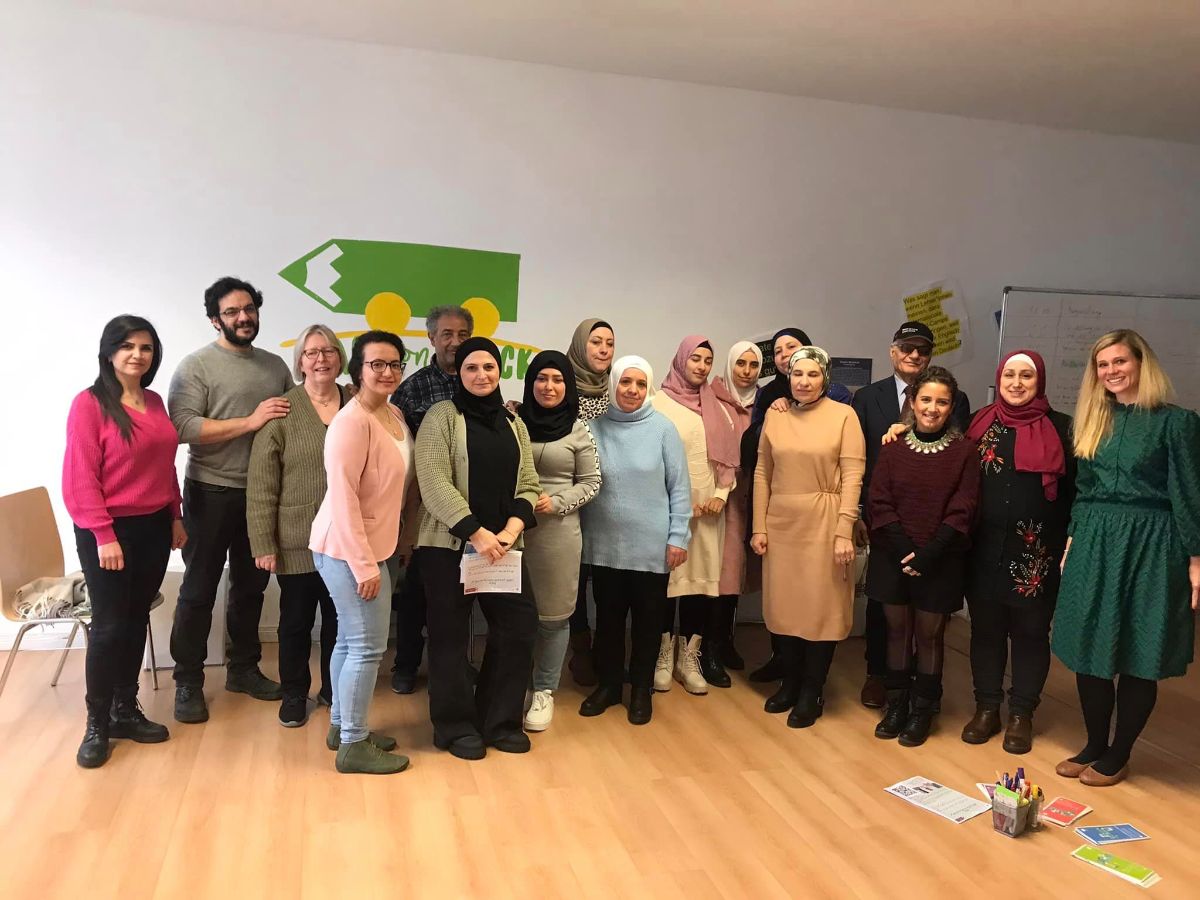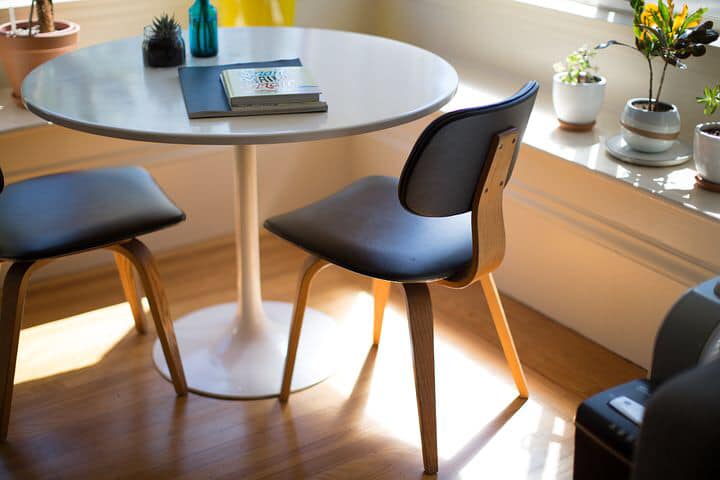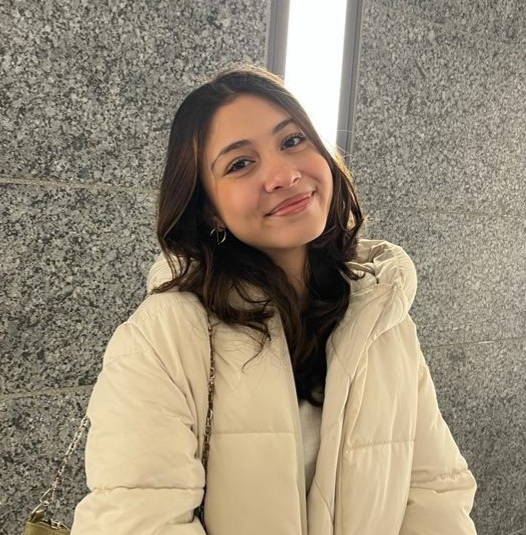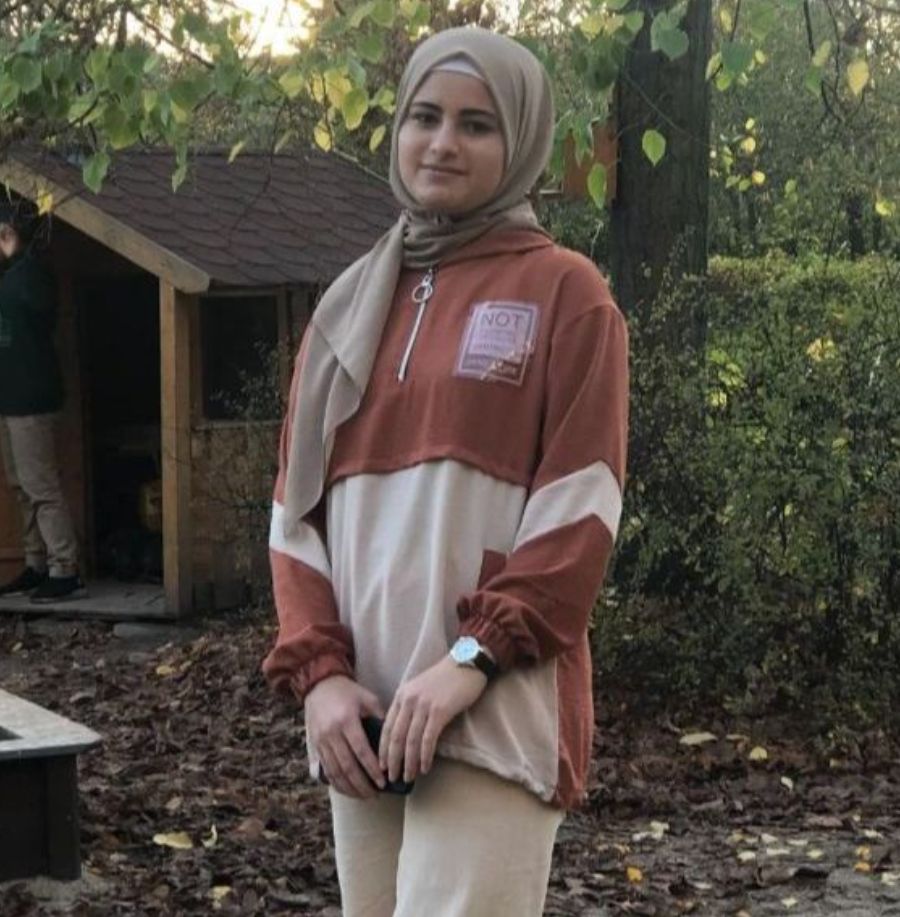
19 Apr Newsletter vom 14. April 2023
Liebe Freundinnen und Freunde von Back on Track,
diesmal sind wir mit dem Newsletter spät dran, denn wir wollen natürlich, dass er gelesen wir und nicht in einem Berg von Mails untergeht, die euch über die Osterfeiertage erreicht haben. Also dann: Was haben wir im März gemacht?
Workshop Mehrsprachigkeit für Mentor*innen und Eltern
Am 04. März hatten wir das Glück, Dr. Nadine Kolb von der Universität Stavanger/ Norwegen als Expertin zum Thema Mehrsprachigkeit befragen zu können. Nadine arbeitet gerade an einer Studie, die erforscht, welche Bedingungen dazu beitragen, dass Kinder ihre arabische Muttersprache und Deutsch gut lernen können.
Besonders profitiert haben die Eltern von der Richtigstellung verbreiteter Vorurteile über Mehrsprachigkeit.
An Nadines Studie können arabischsprachige Familien übrigens auch noch teilnehmen. Bei Interesse gern eine Email (Deutsch, Englisch oder Arabisch) schicken an: nadine.kolb@uit.no

Wir suchen Bildungsberater*innen
Durch eine ausgebliebene Anschlussförderung konnten wir unsere langjährige und bewährte Bildungsberaterin leider nicht mehr finanzieren und haben sie an die Schule verloren. Für die betreffende Schule ist das gut - für unsere Kinder und Jugendlichen ist das richtig schwierig, denn ihnen fehlt jemand, der ihnen gut erklären kann, welche Optionen ihnen offen stehen und der auch mit Schulen kommunizieren kann.
Wir suchen deshalb jetzt Kolleg*innen, die aus der Schule kommen, jetzt Lehrkraft im (Un-)Ruhestand sind und sich auch vorstellen können, auf Minijobbasis (5h/Woche) oder evtl. auch auf Teilzeitbasis mit mehr Stunden benachteiligte Kinder und Jugendliche unterstützen können.
In Zusammenarbeit mit unserer Sozialarbeiterin kümmert ihr euch um Schulplatzsuche und beratet Familien bei Problemen in der Schule.
Meldet euch unter hr@backontrackev.org
Wir freuen uns!

Kein Kopftuchverbot mehr an Berliner Schulen
Wir freuen uns sehr, dass die Senatsverwaltung für Bildung nun das Kopftuchverbot an Schulen aufgehoben hat. In einem Rundschreiben an die Berliner Schulen vom 27.03.2023 hat die Senatsverwaltung angekündigt, das Berliner Neutralitätsgesetz künftig nicht mehr eng auslegen zu wollen.
Das bedeutet, dass die Absolventinnen unserer Weiterbildungen für geflüchtete Lehrkräfte sich nun nicht mehr mit Jobs unterhalb ihrer Qualifikation zufriedengeben müssen, sondern ihnen endlich der Weg in die Schule offensteht.
Wir planen unterdessen die nächste Weiterbildung. Bleibt gespannt!
Wir machen migrierte Eltern fit für die Schule
Noch ein Grund zur Freude: Back on Track e.V. ist jetzt Kooperationspartner im PartEl-Projekt des Bundeselternnetzwerks der Migrantenorganisationen für Bildung und Teilhabe - bbt:
PartEl steht für Partizipation von Eltern aus Drittstaaten in Elterngremien und fördert die Kompetenzen von Eltern, um Chancengleichheit und Teilhabe für ihre Kinder im deutschen Bildungssystem zu erreichen. Das bbt hat es sich zur Aufgabe gemacht, Eltern aus Drittstaaten mit Einwanderungsgeschichte zu ermutigen und zu befähigen, sich in Elterngremien an Schulen zu engagieren. Für uns schließt das wunderbar an unser PARENTable-Projekt an. Wir freuen uns darauf, in den nächsten drei Jahren als Regionalstelle Berlin Eltern für die Gremienarbeit in Schulen fit zu machen!
Finanziert wird das Projekt vom Asyl-, Migrations- und Integrationsfonds (AMIF).

Die nächste Generation von Engagierten ist auf dem Weg
Wie schön zu sehen, dass unsere Arbeit Früchte trägt und sich immer weiter fortpflanzt: Inzwischen haben wir vier ehemalige Schülerinnen in unseren Reihen, die den Sprung in die Oberstufe geschafft haben und sich nun selbst als Mentorinnen engagieren um zurückzugeben, was sie selbst an Unterstützung erhalten haben.
Natürlich können sie da besonders gut Hilfestellung geben, denn sie wissen am besten, was Kinder und Jugendliche brauchen, die sich neu im deutschen Schulsystem zurechtfinden müssen.
Super Sache, Masa, Rosseim, Sara und Israa!
Hier hat unsere Bundesfreiwillige Jasmin ein Interview mit Israa geführt:
Jasmin: Hi Israa, danke, dass du Zeit gefunden hast, heute mit mir über deine Zeit bei Back on Track zu sprechen. Ich hoffe dir geht's gut!
Israa: Hi Jasmin, mir geht es gut, danke! Ich freue mich auf das Interview.
Jasmin: Sehr schön! Ich habe gehört, dass du zuerst Schülerin hier warst. Wie hast du deine Zeit als Schülerin empfunden?
Israa: Mein Vater hat mich damals hier angemeldet. Die Zeit als Schülerin war richtig gut, ich hatte Spaß daran hier zu lernen. Die Lehrkräfte waren alle richtig nett, ich bin sehr gerne hierher gekommen.
Jasmin: Das hört sich sehr schön an. Wie kam es dann dazu, dass du Mentorin wurdest?
Israa: Ich habe früh mitbekommen, dass es möglich ist, sich hier selbst zu engagieren. Also habe ich mich als Mentorin beworben, um selbst eine Hilfe für andere Kinder zu sein.
Jasmin: Super! Kannst du dich noch an deinen ersten Tag als Mentorin erinnern ?
Israa: Ja, ich war etwas aufgeregt, aber das hat sich schnell wieder gelegt. Es hat mir von Anfang an sehr viel Spaß gemacht und ich habe mich auch gleich wohl gefühlt.
Jasmin: Was kannst du anderen mit auf den Weg geben, die auch Mentor*innen werden möchten?
Israa: Man muss auf jeden Fall Geduld mit den Kindern haben, aber daran habe ich mich schnell gewöhnen können. Außerdem sollte man selbstbewusst und hilfsbereit auftreten. Es macht Spaß und man muss sich auch keine Sorgen machen, ob man den Schulstoff selbst kann oder nicht. Die meisten Kinder gehen noch in die Grundschule und man kann sich die Sachen schnell angucken und dann weiß man Bescheid.
Jasmin: Gut, das war’s mit dem Interview. Danke, dass du etwas über deine Zeit als Schülerin/Mentorin mit uns geteilt hast.
Israa: Bitte schön, bis zum nächsten Mal!



Das sind so die Highlights des letzten Monats. Außerdem haben wir im März nicht weniger als 9 (neun!) Projektberichte für das letzte Jahr geschrieben - mit den dazugehörigen Abrechnungen. Danach haben wir von Exceltabellen geträumt!
Jetzt aber heißt es Daumen drücken für die nächsten Förderanträge, an denen wir gerade sitzen, damit unsere Arbeit immer weiter gehen kann!
Einen schönen Übergang in den Mai wünscht mit dem gesamten Team,
Ihre und Eure
Petra Becker


Sorry, the comment form is closed at this time.